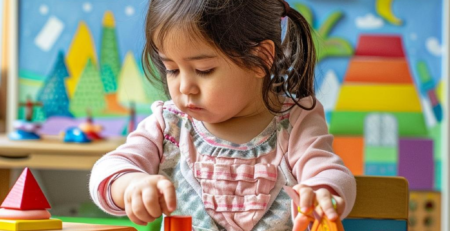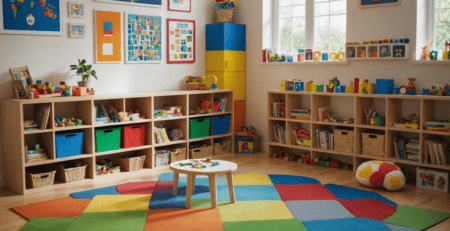
26
Mastering Parental Communication: Effective Strategies
As educators, it is no secret that effective communication with parents is crucial to the success of our students. Navigating the delicate balance of supporting and collaborating with parents can be challenging, but with the right strategies, it is entirely possible to build strong, positive relationships. In this article, we will explore the art of effective communication with parents, offering practical tips and techniques to ensure that our interactions are clear, productive, and ultimately, in the best interest of the children we serve. So, let’s dive into the world of parent-teacher communication and discover how to foster a strong and mutually beneficial partnership.
Table of Contents
- Understanding the Parent’s Perspective
- Creating a Positive Atmosphere for Communication
- Active Listening and Validation
- Setting Clear and Achievable Goals
- Respecting Different Communication Styles
- Seeking Involvement and Collaboration
- Q&A
- In Retrospect
Understanding the Parent’s Perspective
When it comes to effective communication with parents, understanding their perspective is crucial. Parents often have a deep emotional investment in their child’s education, and it’s important to recognize and respect their concerns and priorities. By putting yourself in their shoes, you can gain valuable insights into their expectations, fears, and motivations.
Here are some key points to consider when trying to understand the parent’s perspective:
- Empathy is essential: Recognize that parents want the best for their children and may have fears and insecurities about their child’s progress.
- Communication preferences: Some parents prefer face-to-face meetings, while others may prefer digital communication. Understanding their preferred mode of communication can greatly enhance the effectiveness of your interactions.
- Cultural considerations: Different cultures may have varying views on education and communication. Being sensitive to cultural differences can help build trust and rapport with parents.
| Key Takeaway |
|---|
| Understanding the parent’s perspective is essential for effective communication and building strong partnerships. |
Creating a Positive Atmosphere for Communication
Effective communication with parents is crucial for building a strong partnership between educators and families. can enhance parental involvement, support student success, and foster a sense of community within the school. Here are some strategies to help educators establish a positive environment for effective communication with parents.
Active Listening:
One of the key elements in effective communication is active listening. Educators should provide parents with their undivided attention, show empathy, and validate their concerns. By actively listening to parents, educators can gain a deeper understanding of their perspectives and build trust and rapport.
Open and Transparent Communication:
Transparent communication is essential for establishing a positive atmosphere for communication. Educators should be open about sharing information related to students’ progress, behavioral issues, and any challenges they may be facing. Creating a transparent environment can help parents feel valued and informed, leading to a more collaborative partnership.
Active Listening and Validation
| Benefits | |
|---|---|
| Enhanced trust and rapport | Improved understanding and empathy |
| Open communication | Stronger parent-teacher relationship |
Setting Clear and Achievable Goals
Effective communication with parents starts with setting clear and achievable goals. By clearly defining what you want to achieve, you can ensure that both you and the parents are on the same page. Whether it’s improving a student’s behavior, academic performance, or overall well-being, setting specific goals will allow both parties to work towards a common objective.
When setting goals, it’s important to make sure that they are achievable. Unrealistic goals can lead to frustration and disappointment for both you and the parents. Instead, focus on setting goals that are challenging yet attainable, taking into account the student’s abilities and the resources available. By doing so, you can create a sense of motivation and accomplishment for everyone involved.
Additionally, it’s crucial to communicate these goals effectively to the parents. Be transparent about the objectives, the strategies to achieve them, and the expected timeline. Encourage open dialogue and collaboration, and be willing to adjust the goals as needed. Clear and achievable goals, coupled with effective communication, can lead to a more productive and harmonious relationship with parents.
Respecting Different Communication Styles
When it comes to effective communication with parents, it’s important to understand and respect the different communication styles that they may have. Every individual has a unique way of expressing themselves, and this is especially true for parents. Here are some tips on how to navigate and respect different communication styles when interacting with parents:
- Active Listening: Listen attentively to what parents are saying without interrupting. Show empathy and understanding towards their concerns and emotions.
- Be Patient: Understand that some parents may need more time to process information or express themselves. Practice patience and give them the space they need to communicate effectively.
- Adapt Your Approach: Be flexible in your communication style to meet the needs of different parents. Some may prefer direct and straightforward communication, while others may appreciate a more gentle and empathetic approach.
By respecting different communication styles, you can build better relationships with parents and create a more positive and effective communication process. Remember to always approach each interaction with an open mind and a willingness to adapt to the needs of the parents you’re communicating with.
Seeking Involvement and Collaboration
- Open Communication: Establish open lines of communication with parents through emails, phone calls, and face-to-face meetings.
- Parent Workshops: Host workshops on various topics such as effective communication, understanding academic expectations, and supporting their child’s learning at home.
- Volunteer Opportunities: Offer parents the chance to volunteer in the classroom, school events, or parent-teacher association (PTA) to encourage their active involvement.
Furthermore, collaboration with parents can be fostered through:
- Parent-Teacher Conferences: Schedule regular meetings to discuss a child’s progress, strengths, and areas of improvement.
- Feedback Mechanism: Seek parental feedback on school initiatives, events, and educational programs to make them feel valued and heard.
- Parent Advisory Committees: Create committees where parents can provide input on school policies, programs, and decision-making processes.
Q&A
Q: Why is effective communication with parents important?
A: Effective communication with parents is important in order to build trust, collaboration, and a positive relationship between parents and educators. It also ensures that parents are kept informed about their child’s progress and well-being in school.
Q: What are some effective strategies for communicating with parents?
A: Some effective strategies for communicating with parents include being proactive in initiating communication, being clear and concise in your messages, and actively listening to parents’ concerns and feedback. Additionally, using various communication channels such as emails, phone calls, and face-to-face meetings can help reach parents in different ways.
Q: How can educators address challenging conversations with parents?
A: When faced with challenging conversations with parents, educators should approach the situation with empathy, active listening, and a willingness to collaborate on finding solutions. It’s also important to remain calm and professional, and to focus on the best interests of the child.
Q: What are some common barriers to effective communication with parents?
A: Common barriers to effective communication with parents include language barriers, cultural differences, and lack of time or accessibility. It’s important for educators to be aware of these barriers and find ways to overcome them in order to effectively communicate with all parents.
Q: How can educators involve parents in their child’s education?
A: Educators can involve parents in their child’s education by regularly sharing updates on their child’s progress, involving them in decision-making processes, and providing resources and support for parents to continue learning at home. Additionally, creating opportunities for parents to participate in school events and volunteer in the classroom can also help involve them in their child’s education.
Q: What are some best practices for written communication with parents?
A: Some best practices for written communication with parents include using clear and simple language, providing important information in a timely manner, and being mindful of tone and cultural nuances. It’s also helpful to provide opportunities for parents to ask questions and provide feedback on written communications.
In Retrospect
In conclusion, effective communication with parents is an essential skill for any educator. By actively listening, providing clear and concise information, and maintaining an open and respectful attitude, you can build strong and positive relationships with parents. Remember, the ultimate goal is to create a supportive and collaborative partnership that benefits the student’s academic and personal development. So, put these communication strategies into practice and watch as the connection between you and the parents strengthen, leading to a more successful and harmonious learning environment for all. Thank you for reading, and best of luck in your communication endeavors.










